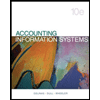
Ethics of internal sustainability reporting (Learning Objectives 1, 2, & 3)
ETHICS
Veronica is an intern in the Accounting Department at Kessler Industries, a manufacturer of precision medical instruments. She is anxious to make a good impression because she wants to be offered a full-time position at this company when she has completed her internship.
One of the tasks that Veronica is given is to help prepare the company’s internal sustainability report, which is prepared using GRI G4 guidelines. The company does not obtain independent-party assurance on its sustainability report since the report is mainly used for internal purposes and management does not feel that assurance is necessary.
Veronica is excited because she is a firm believer in the need for a company to have sustainable practices.
The controller, Andy Thomas, instructs Veronica to skip the report section where the quantity of hazardous waste processed is reported. Andy explains that although this report is intended mainly for internal use, there is always a chance with any written or electronic document that it could make its way into the public’s hands. Management feels that there would be public backlash over the hazardous waste, even though the company does not believe the hazardous waste creates any public health risk. The waste is disposed of through legal and responsible channels.
This GRI report goes to the board of directors and to the company’s managers. In addition, it is given to the company’s bankers.
Veronica protests timidly and says that hazardous waste should probably be recorded and explained if the report is being prepared using the GRI G4 framework. The controller shuts her down promptly, stating that it is not open for debate. Andy points out that the report is only used internally and everyone in the company knows that some hazardous waste is generated, so no harm is done by not stating the obvious. Andy feels that the risk of public disclosure is much greater than any potential harm from not including the hazardous waste on the report.
Veronica is torn about what to do. She really wants to work at this company at the conclusion of her internship. As she considers leaving the hazardous waste figures off the report as instructed, she rationalizes the potential omission by thinking that she will be able to make inroads on the reporting and prepare complete GRI reports in the future when she is a full-time employee. If she’s not hired, she will have no opportunity to have a positive impact on this company.
Requirements
- 1. Using the IMA Statement of Ethical Professional Practice (Exhibit 1-7) as an ethical framework, answer the following questions:
- a. What is(are) the ethical issue(s) in this situation?
- b. What are Veronica’s responsibilities as a
management accountant ? - c. Are there any mitigating circumstances? Is Veronica’s rationalization correct?
- 2. Discuss the specific steps Veronica should take to resolve the situation. Refer to the IMA Statement of Ethical Professional Practice in your response.
Want to see the full answer?
Check out a sample textbook solution
Chapter 15 Solutions
Managerial Accounting, Student Value Edition Plus MyLab Accounting with Pearson eText -- Access Card Package (5th Edition)
- Principles of Accounting Volume 2AccountingISBN:9781947172609Author:OpenStaxPublisher:OpenStax College
 Pkg Acc Infor Systems MS VISIO CDFinanceISBN:9781133935940Author:Ulric J. GelinasPublisher:CENGAGE L
Pkg Acc Infor Systems MS VISIO CDFinanceISBN:9781133935940Author:Ulric J. GelinasPublisher:CENGAGE L Essentials of Business Analytics (MindTap Course ...StatisticsISBN:9781305627734Author:Jeffrey D. Camm, James J. Cochran, Michael J. Fry, Jeffrey W. Ohlmann, David R. AndersonPublisher:Cengage Learning
Essentials of Business Analytics (MindTap Course ...StatisticsISBN:9781305627734Author:Jeffrey D. Camm, James J. Cochran, Michael J. Fry, Jeffrey W. Ohlmann, David R. AndersonPublisher:Cengage Learning  Auditing: A Risk Based-Approach to Conducting a Q...AccountingISBN:9781305080577Author:Karla M Johnstone, Audrey A. Gramling, Larry E. RittenbergPublisher:South-Western College Pub
Auditing: A Risk Based-Approach to Conducting a Q...AccountingISBN:9781305080577Author:Karla M Johnstone, Audrey A. Gramling, Larry E. RittenbergPublisher:South-Western College Pub Auditing: A Risk Based-Approach (MindTap Course L...AccountingISBN:9781337619455Author:Karla M Johnstone, Audrey A. Gramling, Larry E. RittenbergPublisher:Cengage Learning
Auditing: A Risk Based-Approach (MindTap Course L...AccountingISBN:9781337619455Author:Karla M Johnstone, Audrey A. Gramling, Larry E. RittenbergPublisher:Cengage Learning




